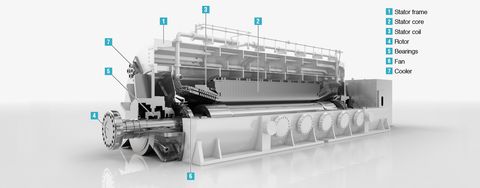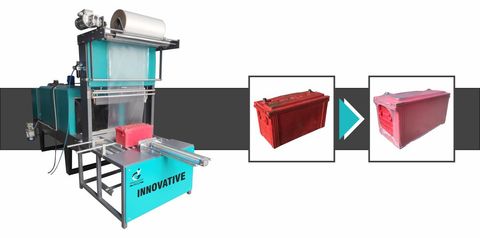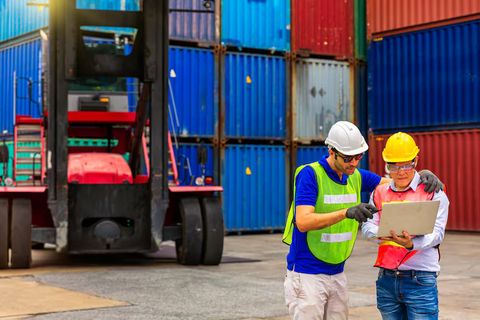Strategies and Hacks for Cost-Effective Shipping Container Management
Shipping containers are the backbone of international trade, carrying more than 90% of the world’s goods. They provide a standardized, durable, and secure way to transport products across oceans, railways, and highways. However, managing these containers efficiently has always been a challenge for logistics companies, importers, exporters, and supply chain professionals.
The issue is not just about moving goods from one place to another. It involves storage, maintenance, reuse, and tracking to avoid unnecessary costs. As global trade volumes increase, container management strategies have become an essential focus for businesses seeking to improve efficiency and reduce overheads.

Importance
Container management matters today more than ever due to several global factors. Port congestion, rising fuel costs, and labor shortages are pushing logistics expenses higher. Businesses that fail to manage containers efficiently risk losing time, money, and customers.
Key groups affected include:
-
Exporters and importers, who need timely shipments at predictable costs.
-
Logistics providers, who must minimize container idle time.
-
Retailers, who rely on predictable supply chains for inventory management.
-
Manufacturers, who need raw materials and parts delivered on schedule.
Problems solved by cost-effective container management:
-
Reducing empty container repositioning – a major cost driver in global shipping.
-
Avoiding demurrage and detention charges – fees for late returns or extended storage.
-
Optimizing warehouse and port space – preventing congestion and delays.
-
Increasing sustainability – cutting carbon emissions through smarter container usage.
Recent Updates
In the past year (2023–2024), several trends and updates have influenced container management:
-
Digital twins and IoT tracking: Many logistics firms are adopting real-time tracking technologies to monitor container location, temperature, and condition.
-
AI-driven container allocation: Artificial intelligence helps predict demand and optimize container usage to avoid shortages or surpluses.
-
Port congestion easing: After severe disruptions during 2020–2022, congestion has slightly improved in 2023, though challenges remain in high-volume ports like Los Angeles and Shanghai.
-
Green shipping practices: More companies are investing in reusable containers and eco-friendly logistics solutions to align with sustainability goals.
-
Freight cost stabilization: According to Drewry Shipping Consultants (2023), average global freight rates have declined from pandemic peaks, reducing pressure but still requiring careful management.
Laws or Policies
Container management is shaped by national and international regulations:
-
International Maritime Organization (IMO): Enforces the Safety of Life at Sea (SOLAS) convention, requiring accurate container weight declarations.
-
Customs regulations: Countries like the U.S. (Customs and Border Protection) and EU enforce strict documentation and container screening rules.
-
Environmental policies: The IMO’s 2023 Carbon Intensity Indicator (CII) rules push shipping lines to reduce emissions, encouraging efficient container usage.
-
National storage rules: Some ports limit how long containers can remain in terminals before incurring penalties.
These laws ensure safe, transparent, and environmentally responsible container handling.
Tools and Resources
Several tools and platforms can support cost-effective container management:
| Tool/Resource | Purpose |
|---|---|
| Container xChange | Online platform for container leasing, trading, and tracking. |
| INTTRA | Global booking system for container shipments. |
| Project44 & FourKites | Real-time visibility platforms for supply chain tracking. |
| Port Authority Websites | Updates on demurrage policies, container dwell times, and port congestion. |
| Fleet Management Software | Helps companies track usage, schedule maintenance, and reduce idle time. |
| Carbon Emission Calculators | Estimate CO₂ emissions from shipping to support sustainable decisions. |
Using these tools can help companies reduce costs, avoid penalties, and maintain better control over their shipping assets.
FAQs
Q1: Why is empty container repositioning so expensive?
Because containers often arrive full at ports with little demand for exports, they must be shipped empty to locations where they are needed. This creates high transport costs without revenue generation.
Q2: What are demurrage and detention charges?
Demurrage is a fee charged when containers stay too long inside a port or terminal. Detention is charged when a container is kept outside the port beyond the agreed free time. Both can be avoided through efficient planning.
Q3: Can technology really reduce container costs?
Yes. IoT sensors, AI allocation systems, and digital booking platforms allow companies to monitor, predict, and optimize container use, often reducing costs significantly.
Q4: How do environmental rules affect container management?
New IMO carbon regulations encourage shipping lines and shippers to use containers more efficiently to lower emissions. Poor management can indirectly increase environmental compliance costs.
Q5: Is buying or leasing containers more cost-effective?
It depends on the business model. Leasing is flexible for short-term needs, while purchasing is better for long-term, stable shipping operations.
Conclusion
Efficient shipping container management is no longer optional—it is a necessity in today’s interconnected world. With rising costs, stricter environmental policies, and evolving global trade dynamics, businesses must adopt smarter strategies and hacks to stay competitive.
By understanding the context, importance, latest updates, laws, and available tools, companies can reduce empty repositioning, avoid costly penalties, and increase supply chain resilience.
Ultimately, cost-effective container management is about balancing efficiency, technology adoption, and sustainability. Organizations that implement these practices will be better positioned to navigate future trade challenges while reducing expenses and environmental impact.






